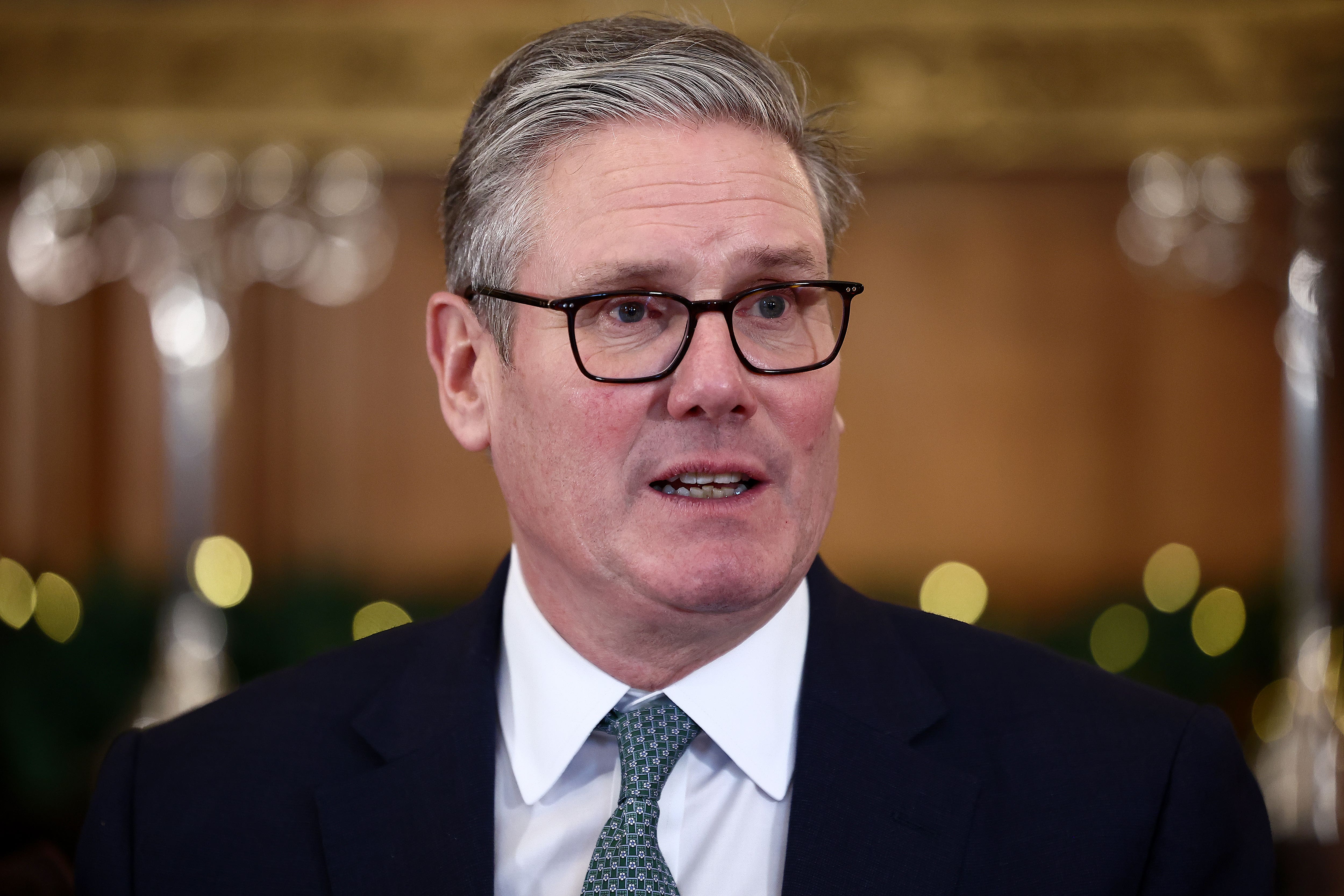Starmer under pressure to deliver in 2025 as Labour tested by local elections
The Prime Minister ran on a platform of economic growth during the general election and has said he wants people to feel better off.

Sir Keir Starmer will be under pressure to prove he can deliver on Labour’s promises in 2025 as the party faces its first electoral test since its landslide general election victory.
After Rachel Reeves’ first Budget in October saw £40 billion of tax rises that she said would “wipe the slate clean”, she will set out a spending review next year.
The Chancellor has said this will crack down on waste in Whitehall so money can go elsewhere, such as to improve living standards.
She has ordered departments to find 5% savings, which could mean cuts for the Civil Service from 2026.
Labour has also promised a timetable for boosting defence spending to 2.5% of GDP will be revealed in the strategic defence review in the spring.
It will be a delicate balance: Sir Keir could face a backlash to the cost depending on where the money will come from, but failing to show how they will meet the goal will raise questions at a time when he has doubled down on support for Ukraine and said the UK needs to bolster its military capabilities.
The Prime Minister ran on a platform of economic growth and has said he wants people to feel better off, but has acknowledged it will “take some time” before living standards improve across the country.
He is putting Labour’s plans in motion, pledging to take on “nimbys” with planning reforms that aim to cut red tape and clear the way to build 1.5 million homes and get decisions made on 150 major infrastructure projects.
But some will be worried about environmental protections being weakened and local councils being bypassed to achieve this.
Plans to decarbonise the grid by 2030 will also press ahead. The Government has said this will save people up to £300 on energy eventually, but bills could still rise during the transition period as the UK continues to rely on fossil fuels.
As part of the drive to build infrastructure for clean energy, ministers will be able to bypass local opposition to onshore wind farms. How accepting people are of this may hinge on the incentives for communities that host them.
The Prime Minister has shrugged off plummeting polling for Labour and his own declining popularity, saying he will be judged at the next general election.
A petition calling for a re-run of the general election, now signed by more than three million people, will not lead to another election but will get renewed attention when MPs debate it in January.
And local elections will give a measure of how the public feel about the party across the country.
All seats on all 21 county councils and 10 unitary authorities in England will be up for election in May – but some could be postponed if they are far enough along in being redesigned under “devolution revolution” plans.
If Labour struggles to win seats, this may not result in recording massive losses as they are coming from a low base in the 2021 polls.
The Conservatives have more to lose – they made significant gains at those elections, thought by many to be down to a successful Covid-19 vaccination campaign that buoyed the party’s popularity.
Nigel Farage’s Reform UK hopes to boost its numbers on councils and has approved more than 1,000 candidates, including Tory defector Andrea Jenkyns, who will run for the newly-created role of Greater Lincolnshire Mayor.
Sir Keir will also face challenges abroad as he seeks to reset the UK’s relationship with the EU and support Ukraine while navigating US President-elect Donald Trump’s return to the White House.
The Prime Minister has rejected suggestions that he will have to choose between a closer trade deal with the EU and a free trade agreement with Mr Trump, who has threatened to impose tariffs that experts predict would have damaging consequences.
Efforts to improve relations with Beijing are also set to continue, but Sir Keir has acknowledged the “challenge” that China poses amid fresh allegations that spies have been infiltrating Westminster.
In Parliament, MPs will scrutinise proposals to legalise assisted dying after the Bill cleared its first parliamentary hurdle in a historic Commons vote.
Some who supported the Bill indicated they might not continue to do so at a further vote if they are not convinced of safeguards around potential coercion.
A committee will examine the issues highlighted during the debate.
Bookmark popover
Removed from bookmarks